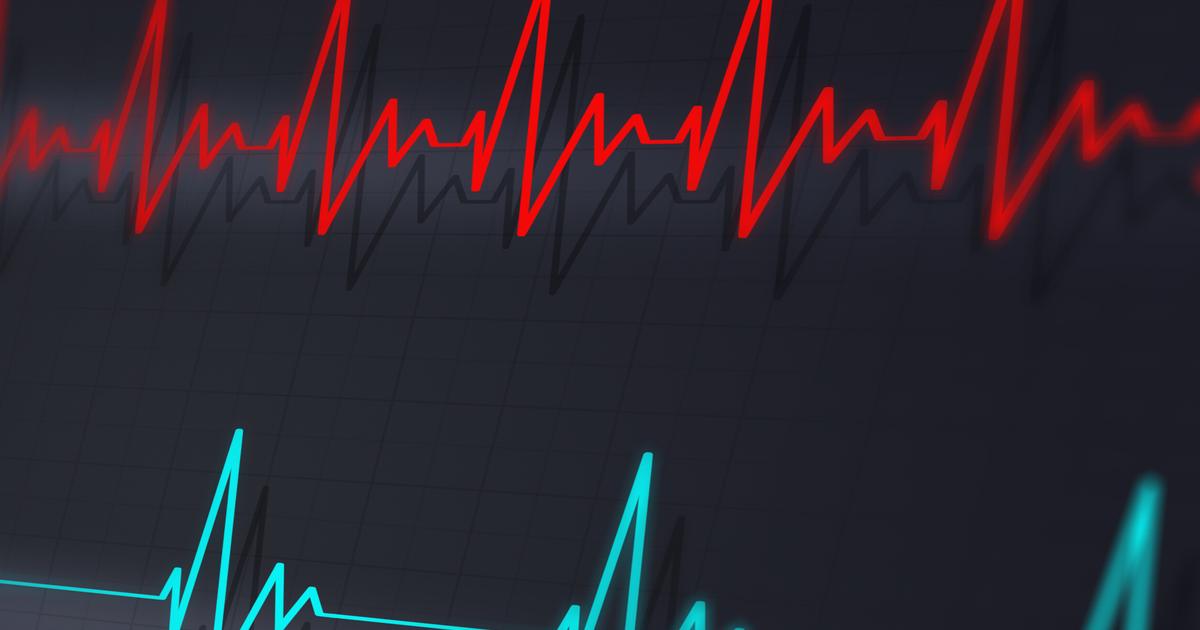Early Warning Signs Of Heart Failure
Heart failure is a condition in which an individual's heart is not pumping oxygen-rich blood throughout the body as well as it is supposed to be, often due to stiff ventricles or heart muscle damage causing ventricle dilation. As the condition is progressive, the heart first attempts to make up for this compromised function by pumping faster to increase its output, stretching so the muscles contract with more strength (resulting in an enlarged heart), and accumulating more muscle mass. Many medical conditions can cause damage to the heart and result in heart failure, including suffering from a heart attack, hypertension, cardiomyopathy, myocarditis, arrhythmias, and heart defects. Heart failure is diagnosed through the use of many tests, including echocardiograms, electrocardiograms, stress tests, and blood tests.
Spotting heart failure early is crucial when it comes to managing the condition as effectively as possible. With this in mind, get familiar with the warning signs of heart failure now.
Fatigue And Weakness

Fatigue and weakness as early signs of heart trouble are not the same as being tired from participation in normal activities. In fact, some individuals who experience heart-related fatigue say the experience surprises them. They may be doing something that's normally very easy for them to do, and then suddenly they feel exhausted. The kind of fatigue from heart problems is caused by having reduced blood flow from the heart to the body, which happens when the heart is not working properly. Climbing stairs, lifting something heavy, and modest exercise can bring on a bout of sudden exhaustion.
Heart-related fatigue may also come up without any physical exertion and can happen at any time of day, regardless of whether a person is well-rested or not. This is an indication there may be heart troubles causing the problem. Fatigue and weakness may be caused by heart problems, including defects in the heart valves, having a weak heart muscle, and having a heart infection.
Continue for more warning signs of heart failure now.
Swelling In Legs And Feet

Swelling in legs and feet may indicate circulation troubles that develop from heart problems. Swelling may start in one ankle or foot and then increase to include both of the lower legs, ankles, and feet. Four valves in the heart, the mitral, tricuspid, aortic, and pulmonary valves control the blood flow. As blood returns from the body, it enters the heart through the tricuspid and mitral valves, which are open while the aortic and pulmonary valves are closed. When blood is pumped out of the heart, the tricuspid and mitral valves are closed, and the aortic and pulmonary valves are open.
The coordination of the opening and closing of the heart valves allows the heart to pump the blood properly. Having enough heart muscle strength, along with working heart valves, provides adequate blood circulation throughout the body. Swelling in the lower extremities may be caused when the heart valves are damaged and not working correctly.
Keep reading to learn information about the next early warning sign of heart failure.
Rapid Weight Gain From Fluid Retention

Fluid retention caused by heart problems can show up in any part of the body. If a person has not changed their diet or exercise regime and suddenly starts to gain weight quickly, it may be fluid retention, which usually occurs from a blood circulation problem. Women may experience fluid retention just before monthly menstruation and during pregnancy. This is normal and not cause for alarm. Lowering salt intake, increasing magnesium and B6 vitamin levels, as well as taking a diuretic helps reduce this type of water retention, commonly referred to as 'bloating.'
More serious levels of fluid retention, which result in significant and unexpected weight gain, may be caused by kidney failure or heart problems. Women not on their period or pregnant and any men who experience rapid weight gain from fluid retention should immediately consult their doctor about potential heart and kidney problems.
Continue to get the details on the next warning sign of heart failure.
Shortness Of Breath And Coughing

Shortness of breath and coughing that comes from heart problems is not the same as what individuals experience from having a cold or the flu. There is usually no fever involved or congestion that causes a heart-related cough or difficulty breathing. Many describe this shortness of breath as coming from a feeling of tightness in the chest. Those experiencing shortness of breath need to see a doctor, who will be able to determine if the breathing troubles come from a problem with the lungs, such as a pulmonary infection, bronchitis, pneumonia, or another lung disease. If the lungs are not the source of the problem, then the heart may be the cause. Shortness of breath and coughing caused by heart problems occurs when the heart is not pumping enough blood. Blood needs to circulate through the lungs and carry oxygen to the body tissues. It is the lack of oxygenated blood that makes a person feel like they need to breathe more.
Continue for another major warning sign of heart failure.
Chest Pain

Severe chest pain is a very dangerous condition. Those who experience this pain, and anyone observing them, should immediately call emergency services. An individual who suffers from this sudden intense pain may be experiencing a heart attack and require immediate cardiopulmonary resuscitation (CPR) efforts to survive. The American Heart Association recommends giving CPR while waiting for an ambulance to arrive. Give first aid by using the hands-only technique. Use two hands, one placed over the back of the other one, and then make chest compressions at the tempo of one hundred to 120 beats per minute. This is the speed of the music beat from the classic disco song Staying Alive.
Not all heart problems start with a warning that includes pain in the chest. However, any chest pain, even if it's only a mild, dull pain may be a warning sign of heart problems.
Learn more about heart failure warning signs now.
Increased Urination At Night

Patients with heart failure may notice increased urination at night. This occurs as a result of the fluid retention associated with the condition. As urinary frequency increases during the overnight hours, individuals often find their sleep is disrupted, which could lead to the development of additional health issues, and it might worsen existing health concerns. Older adults with heart failure are especially likely to experience increased nighttime urination. They typically need to use the bathroom more than two times during the night. To manage increased urinary frequency, doctors may suggest patients change the time at which they take diuretics and other medication. It can be helpful to empty the bladder frequently before the sensation of urgency occurs, and patients could benefit from reducing their intake of caffeine, sugar, and other substances that stimulate the bladder. The use of a portable toilet placed beside the patient's bed could reduce the amount of disruption caused by increased urination at night.
Get more information on the symptoms linked to heart failure now.
Irregular Heartbeat

Heart rhythm abnormalities are particularly common in individuals with congestive heart failure. The patient may feel as though their heart is pounding or racing, and fluttering sensations could occur as well. Some patients experience skipped heartbeats. If these symptoms occur, the patient should see their cardiologist as soon as possible. The cardiologist will check the patient's pulse in several locations, and they will listen to the patient's heartbeat with a stethoscope. An electrocardiogram may be performed, and some patients will need to have an echocardiogram. Doctors might ask the patient to wear a portable Holter monitor at home for a few days. The monitor records the electrical activity of the patient's heart. A tilt table test and a stress test might be recommended in certain cases. Medications can help control an irregular heartbeat, and doctors may advise patients to have an implantable cardioverter-defibrillator. Cardiac resynchronization therapy (biventricular pacing) could also be considered.
Continue reading to reveal more warning signs of heart failure now.
Ascites

Ascites is an abnormal accumulation of fluid in the abdomen, and it sometimes develops in patients with congestive heart failure. Ascites also triggers symptoms such as nausea, shortness of breath, heartburn, vomiting, and loss of appetite. Patients might notice swelling in their legs and ankles, and ascites could trigger a fever. Some patients with ascites may develop a hernia. To diagnose ascites, doctors will ask the patient questions about their symptoms. They will need to know when the patient first noticed the accumulation of fluid, and they will ask whether any abdominal pain is present. Doctors will also ask questions about changes in the patient's appetite, and they will need to know about all of the patient's current medications.
After completing the health history, the doctor will perform a physical exam. They will listen to the patient's heartbeat and breathing, and an abdominal examination will be performed. The doctor will place a stethoscope on the abdomen to check for bowel sounds, and they might gently tap on several parts of the abdomen. Gentle pressure will be applied to the abdomen to check for lumps, swelling, and pain. Blood tests, ultrasounds, and CT scans may be requested. If ascites is confirmed, doctors can remove the abdominal fluid with a procedure called paracentesis. This procedure also helps doctors determine the underlying cause of the ascites. Treatment for this condition often includes medications such as diuretics, and patients have to restrict their salt and liquid intake to prevent fluid from accumulating again.
Read more about the symptoms of heart failure now.
Appetite Loss

The fluid retention that occurs with heart failure often causes patients to feel full and bloated, which may result in substantial appetite loss. Patients might feel quite full after eating a small amount, and they could skip meals entirely. Changes in appetite could indicate a patient's heart failure is getting worse, and they should be mentioned to the patient's healthcare team as soon as possible. Appetite loss is particularly common in patients with end-stage heart failure. To cope with appetite loss, it may help to plan several small meals based on the patient's favorite foods. Low-sodium foods should be selected, and it is beneficial to include high fiber foods. Patients should avoid processed foods, saturated fats, and alcohol, and their fluid intake should be monitored. Appetite loss could make it difficult for the patient to get adequate nutrition and a sufficient intake of calories. Patients often lose weight, and they may develop muscle wasting. Eating could become uncomfortable. If this occurs, caregivers are advised not to try to force the patient to eat. Doing so will not extend the patient's life.
Discover additional heart failure symptoms now.
Inability To Exercise

Patients with heart failure often experience fatigue and shortness of breath, and these symptoms may make them unable to exercise. Patients might feel as though they are gasping for air after taking a few steps, and there may be tightness in the chest. Individuals who have heart failure should ask their healthcare team about whether it is safe for them to exercise. They should ask about what activities may be best for them and about how long they can exercise safely. Patients who are unable to exercise should try to limit the exertion associated with their daily activities. They may need to ask others to complete household tasks, and it is important to make time to rest. Patients should discuss any changes in their activity levels with their doctor.